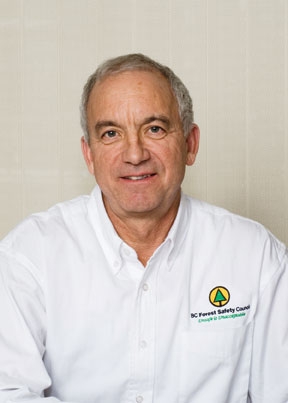
Features
Forestry Management
Harvesting
Moving on SAFETY in BC
For years, our province’s safety record in timber harvesting was noth-ing to brag about. In fact, it was deadly. But in the 21st century, we’re committed to changing for the better, and early results show signs of a better future for everyone in BC’s working woods.
November 22, 2011 By Ron Gorman
 For years
For years
What started our current march to progress was a provincial government task force that documented deep-seated problems in a comprehensive 2004 report recommending wholesale, far-reaching changes. They meant serious investment by industry, and major efforts by other players. But recognizing that it needed to be done, everyone signed on: licensees, companies of all kinds and sizes, labour and the BC government and its forestry and safety agencies.
The BC forest sector has taken responsibility for its unacceptable safety performance. Collectively, we said, “This is unacceptable. This is our problem, and we’re going to fix it.”
That’s exactly what we did and continue to do, individually and collectively. Since 2004, companies of all sizes and kinds have paid more attention to how we treat and practice safety. As a sector, we adopted the BC Forest Safety Accord, formed the BC Forest Safety Council, and through the Council, launched diverse programs that over time will fundamentally create a new safety culture.
From the get-go, we understood that this would be a long-term commitment. Attitudes don’t change overnight, and programs take time to implement. It’s very satisfying, then, to see our efforts starting to pay off with a year of unprecedented progress.
Better Year
A newly released statistical analysis shows these dramatic improvements in 2006. On top of a steep year-to-year decline in fatalities, we saw:
• A 21.5% reduction in injuries, from 1,193 in 2005 to 963 last year.
• A 39.0% drop in injury costs, from $35.5 million in 2005 to $27.8 million last year.
The crucial benefits are fewer personal lives disrupted by injuries, and higher morale, thanks to our forest sector’s clear commitment to the safety of workers and workplaces.
Changing attitudes in a large, diverse industry takes patience and hard work. Our forest sector has made a good start through the BC Forest Safety Council — with its training and certification programs for individual workers like manual tree fallers, and a SAFE Companies program that will ultimately certify all forestry operations as meeting and exceeding required safety standards. Complementing these programs are efforts by other players including government and WorkSafeBC, who are also taking positive actions to improve forestry safety.
Ultimately, however, it will be the cumulative effects of decisions and actions by individuals and companies that keep our workers safe and our businesses healthy.
You can see the final objective outlined in the Council’s corporate motto, “Unsafe is unacceptable”. This is shorthand for the broadly shared goal of eliminating serious injuries and fatalities. It’s no small task, and it’s especially difficult as we work through one of the most difficult periods in our history. But even in tough times, maintaining the momentum for more safety progress will help us focus on what’s critical to the long-term success of forestry in BC.
Adversity can be a good place from which to grow, something my family learned in the 1970s when a terrible fire completely destroyed our com-pany’s sawmill. In the costly process of rebuilding after the disaster, we diversified and modernized. It meant we later grew in ways that probably wouldn’t have been possible before the fire.
In terms of an unacceptable safety performance, BC’s forest sector is also working its way out of adversity. In rela-tive terms, the process today is in its early stages, but we have made a good beginning — one to build on.
Our future depends on improved workplace safety, and investments here today will pay dividends in a healthier industry tomorrow, one that is more dynamic, efficient and innovative — and able to assure workers and their families that earning a living doesn’t come at the price of life and limb.
Co-chair of the BC Forest Safety Council director, Ron Gorman is chief executive officer of Gorman Bros. Lumber Ltd. Harvesting and milling timber in the Okanagan Valley, the 56-year-old family company is grooming its third generation of working owners.
Print this page